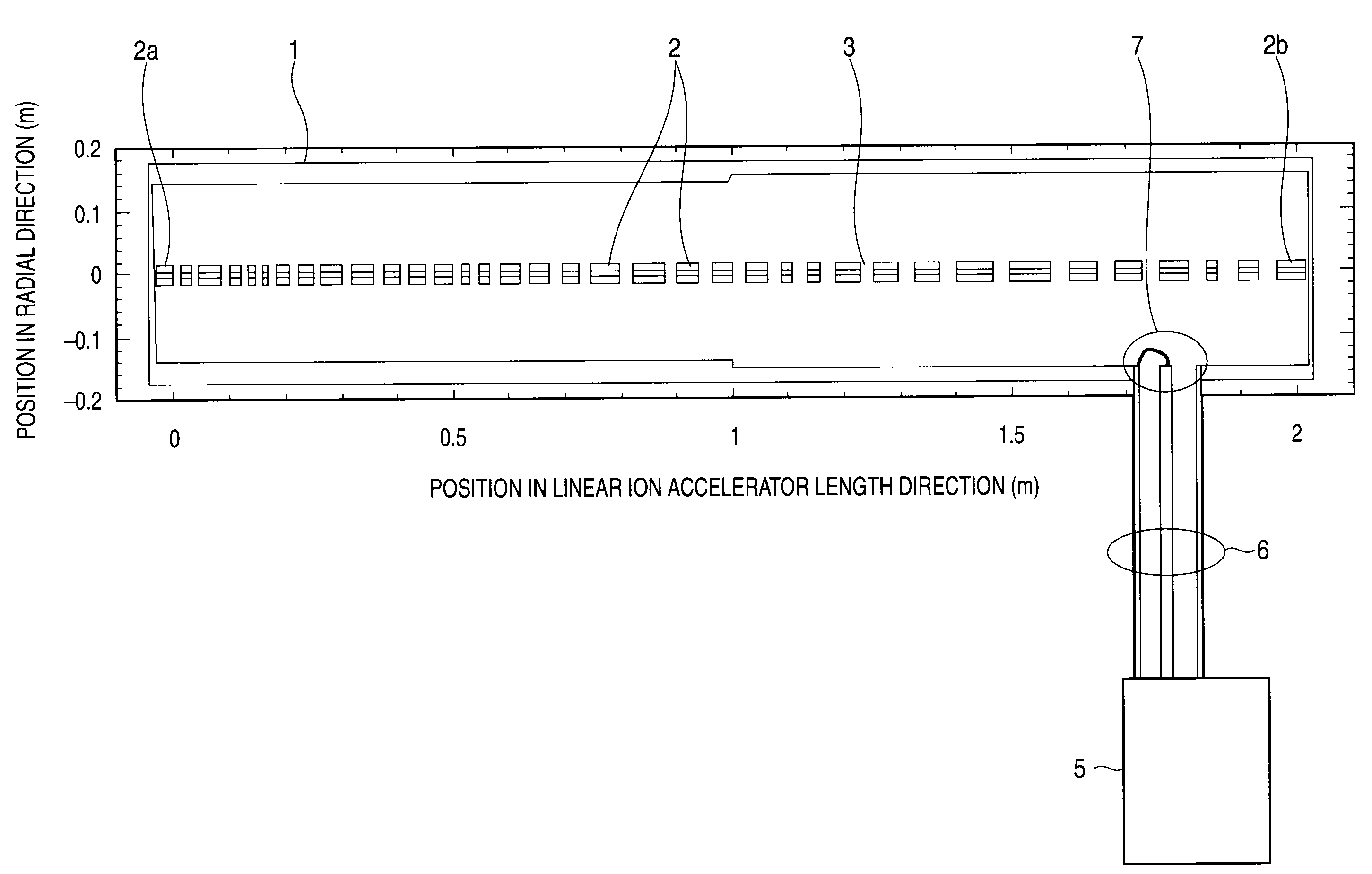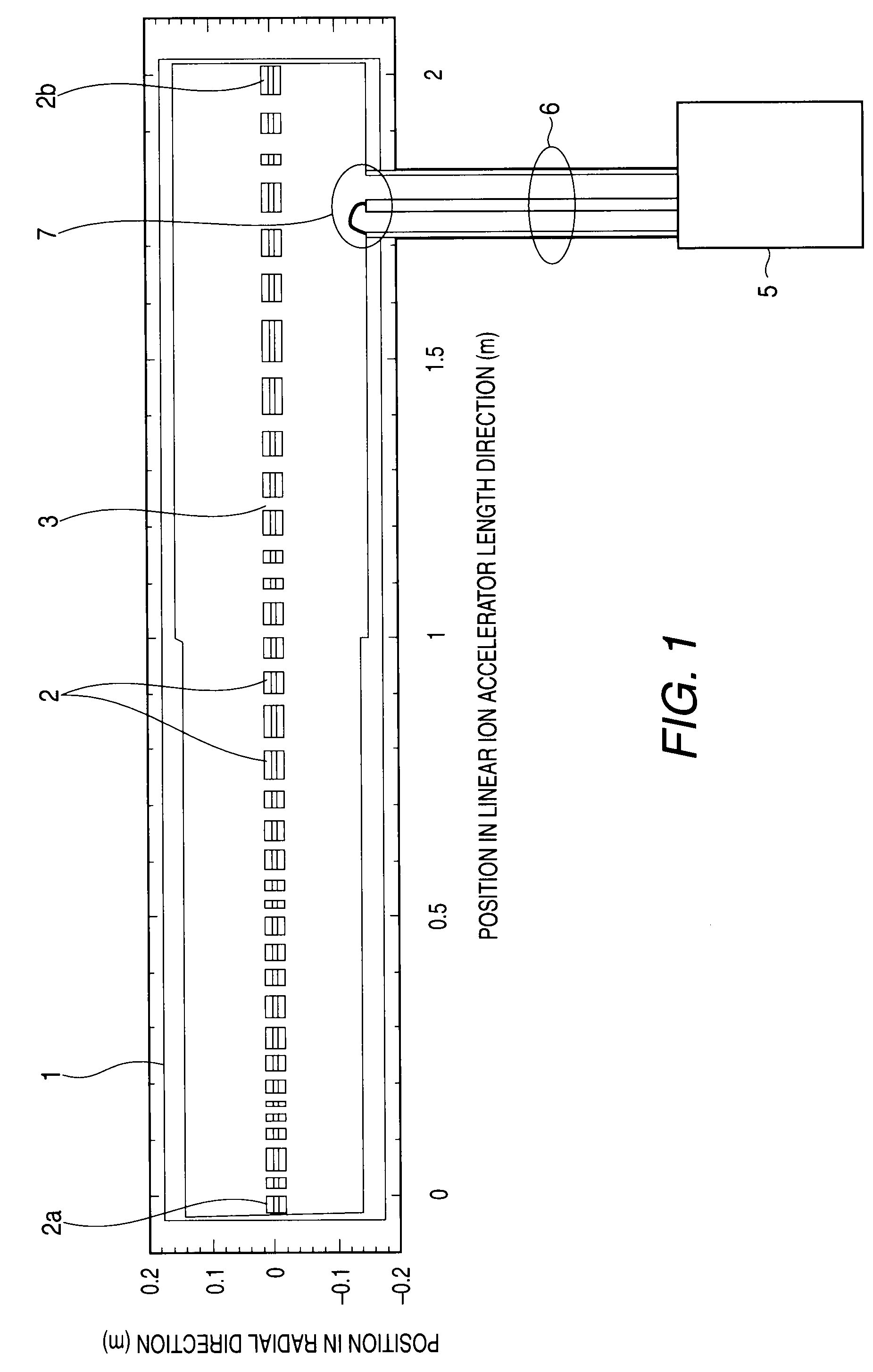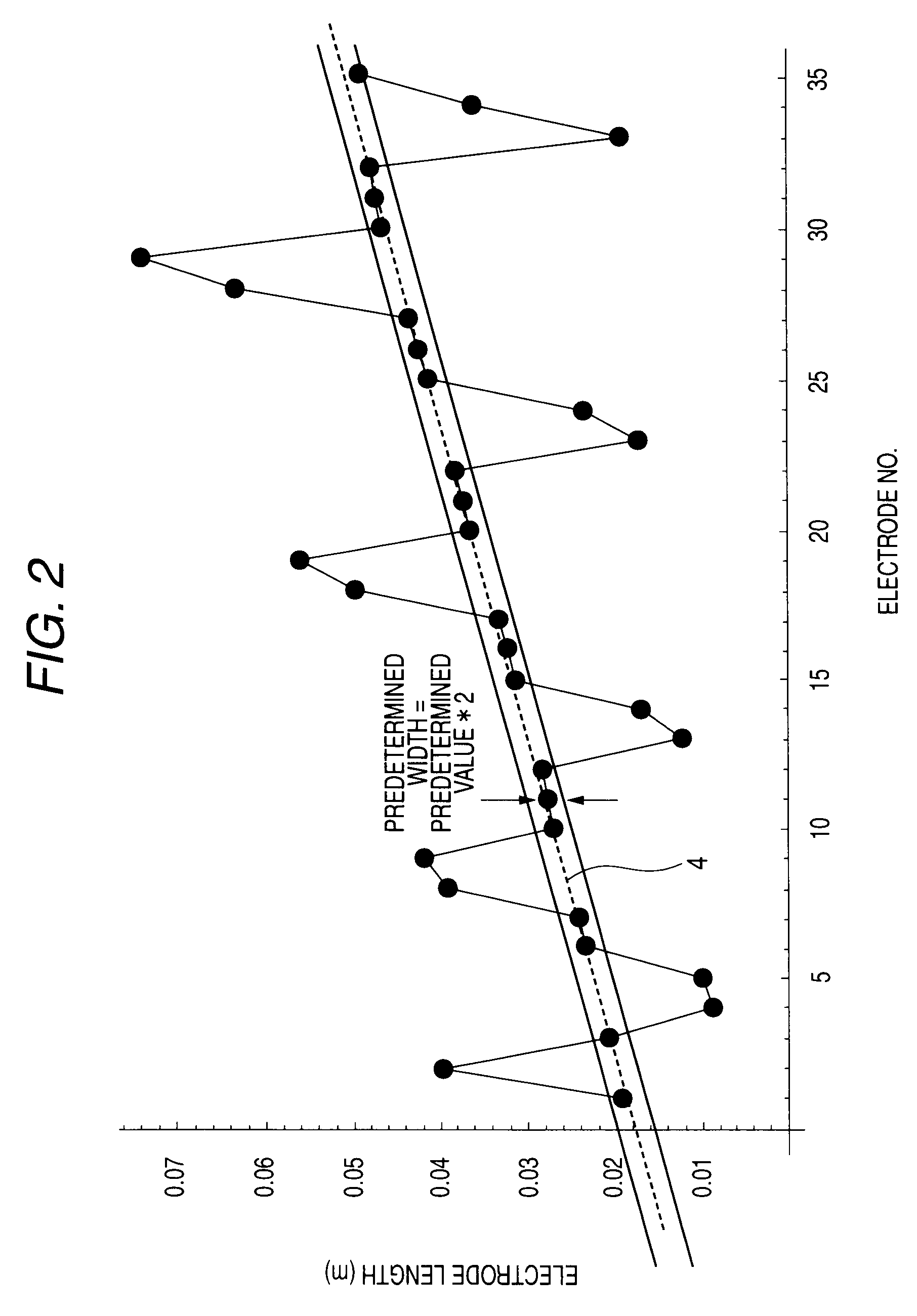Linear ion accelerator
a linear ion accelerator and accelerator technology, applied in the direction of instruments, mass spectometers, beam deviation/focusing by electric/magnetic means, etc., can solve problems such as length reduction problems, and achieve the effect of reducing the total length and high energy level
- Summary
- Abstract
- Description
- Claims
- Application Information
AI Technical Summary
Benefits of technology
Problems solved by technology
Method used
Image
Examples
first embodiment
[0024]FIG. 1 is a cross sectional view of the concept of an APF linear ion accelerator according to a first embodiment of the present invention. In FIG. 1, the horizontal axial direction represents the direction of the length of the APF linear ion accelerator (or the central axial direction), the vertical axial direction represents a direction perpendicular to the central axial direction of the linear ion accelerator, and numerical values provided for the vertical axis and the horizontal axis are example values representing locations in the individual directions using the unit of the meter. An acceleration cavity 1 is used to confine a radio frequency electric field, and a plurality of cylindrical electrodes 2, called drift tubes, are arranged, in the manner as shown in FIG. 1, along the central axis of the acceleration cavity 1 (the horizontal axis that runs across 0 of the scale for the vertical axis in FIG. 1). The number of the cylindrical electrodes becomes sometimes from sever...
PUM
 Login to View More
Login to View More Abstract
Description
Claims
Application Information
 Login to View More
Login to View More - R&D
- Intellectual Property
- Life Sciences
- Materials
- Tech Scout
- Unparalleled Data Quality
- Higher Quality Content
- 60% Fewer Hallucinations
Browse by: Latest US Patents, China's latest patents, Technical Efficacy Thesaurus, Application Domain, Technology Topic, Popular Technical Reports.
© 2025 PatSnap. All rights reserved.Legal|Privacy policy|Modern Slavery Act Transparency Statement|Sitemap|About US| Contact US: help@patsnap.com



